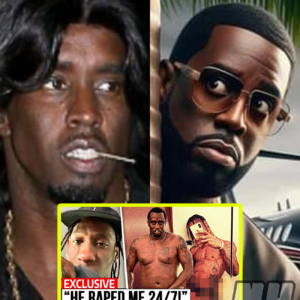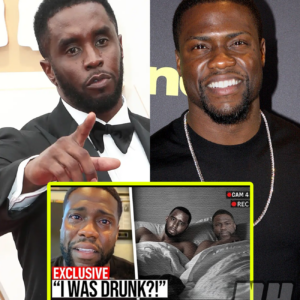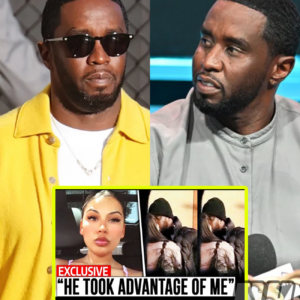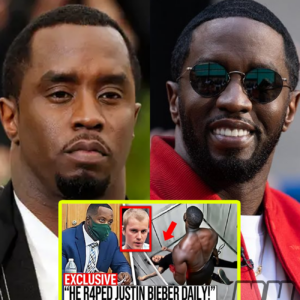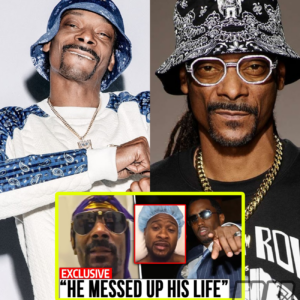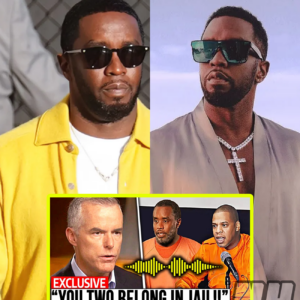The Rise and Fall of Diddy: A Cultural Commentary
In recent times, Diddy, once a towering figure in the music and entertainment industry, has found himself at the center of controversy and ridicule. From allegations of misconduct to becoming a punchline for comedians, his fall from grace has been swift and dramatic.

However, to truly understand the current state of affairs surrounding Diddy, one must delve deeper into the historical context of Hollywood’s dark underbelly and the evolution of public perception towards powerful figures.
The recent wave of allegations and mockery directed at Diddy is not an isolated incident but rather a reflection of a broader cultural shift. As discussed in a recent interview, there has been a paradigm shift in how society views allegations of sexual assault and misconduct, particularly concerning powerful men.
Gone are the days when such individuals were given the benefit of the doubt, with the #MeToo movement playing a pivotal role in holding them accountable for their actions. This shift signifies a move towards a more equitable and just society, where victims are no longer silenced and perpetrators are held accountable.
The comparison between Diddy and other disgraced figures, such as R Kelly, underscores the seriousness of the allegations against him. The fact that Diddy is repeatedly mentioned in the same breath as individuals like R Kelly speaks volumes about the gravity of the situation he finds himself in.
Moreover, the mockery and ridicule directed at Diddy, particularly in the realm of comedy, highlight the extent to which his reputation has been tarnished.
The media circus surrounding Diddy is not just confined to allegations of misconduct but extends to his personal life and associations as well. The rumors and speculations surrounding his alleged involvement in various scandals, including a supposed sex cult, have only served to further erode his reputation.
Moreover, the relentless scrutiny of his lifestyle and associations, including his friendships with other high-profile individuals, has cast a shadow over his once-glamorous image.
The emergence of the “no Diddy” phenomenon, akin to the earlier “no homo” phrase, reflects the public’s disdain and mockery towards him. It has become a shorthand way of disassociating oneself from anything remotely related to Diddy, further cementing his pariah status in popular culture.
The proliferation of memes and jokes at his expense, including the creation of fictional characters like “The Diddler,” underscores the extent to which he has become a cultural punchline.
However, amidst the laughter and ridicule, it is essential not to lose sight of the human cost of such scandals. Behind the headlines and jokes are real people whose lives have been irreparably damaged by the actions of powerful individuals like Diddy. It serves as a stark reminder of the importance of accountability and justice, particularly in an industry rife with exploitation and abuse.
In conclusion, the rise and fall of Diddy serve as a cautionary tale about the perils of unchecked power and privilege. His downfall, while entertaining to some, should prompt a larger conversation about the systemic issues that enable such behavior to thrive. It is only through a collective effort to hold individuals like Diddy accountable that we can hope to create a more equitable and just society for all.
News
(VIDEO) Celebs that P Diddy EXPLOITED for Cash
P Diddy and the Dark Side of the Entertainment Industry The entertainment industry is no stranger to scandal and controversy, but the recent revelations surrounding P Diddy (Sean Combs) have brought to light a web of disturbing allegations and connections…
(VIDEO) Kevin Hart IN TEARS After New Leaks EXPOSE Him At Diddy’s After Parties!!
Kevin Hart: A Complex Journey Through Fame, Scandal, and Personal Growth Kevin Hart, the renowned comedian and actor, has led a life marked by both incredible professional success and deeply personal scandals. His journey from selling sneakers to becoming one…
(VIDEO) “He Ruined My Life” Former Diddy Employees TEAM UP To EXPOSE Him!
The Dark Side of Fame: Allegations Against Diddy and the Revelations from Former Employees The music industry is often glamorized for its glitz and glamour, but behind the scenes, it can harbor dark secrets and troubling behavior. Recently, Sean “Diddy”…
(VIDEO) “He’s Why Justin Bieber Is DEPRESSED!” Undercover FBI Agent EXPOSES Diddy
The Tumultuous History of Snoop Dogg, P. Diddy, and the East Coast-West Coast Rivalry Hip-hop history is fraught with feuds, friendships, and ever-changing alliances. Central to many of these stories are iconic figures such as Snoop Dogg and P. Diddy…
(VIDEO) “Diddy Did Usher Dirty Forever” Snoop Dogg EXPOSES Sean Combs!
The Tumultuous History of Snoop Dogg, P. Diddy, and the East Coast-West Coast Rivalry Hip-hop history is fraught with feuds, friendships, and ever-changing alliances. Central to many of these stories are iconic figures such as Snoop Dogg and P. Diddy…
(VIDEO) Undercover CIA Agent EXPOSES Diddy & Jay Z!
The Fall of P. Diddy: A Dismantling of Credibility and the Unfolding Legal Crisis Introduction In recent years, Sean “P. Diddy” Combs has found himself at the epicenter of numerous controversies and legal battles that have significantly tarnished his once-polished…
End of content
No more pages to load
